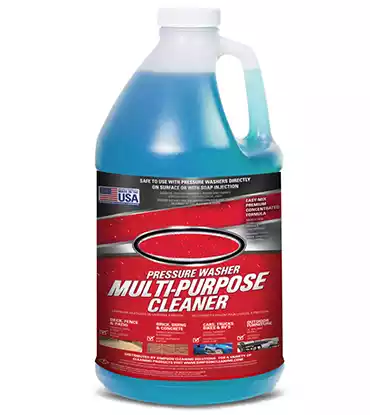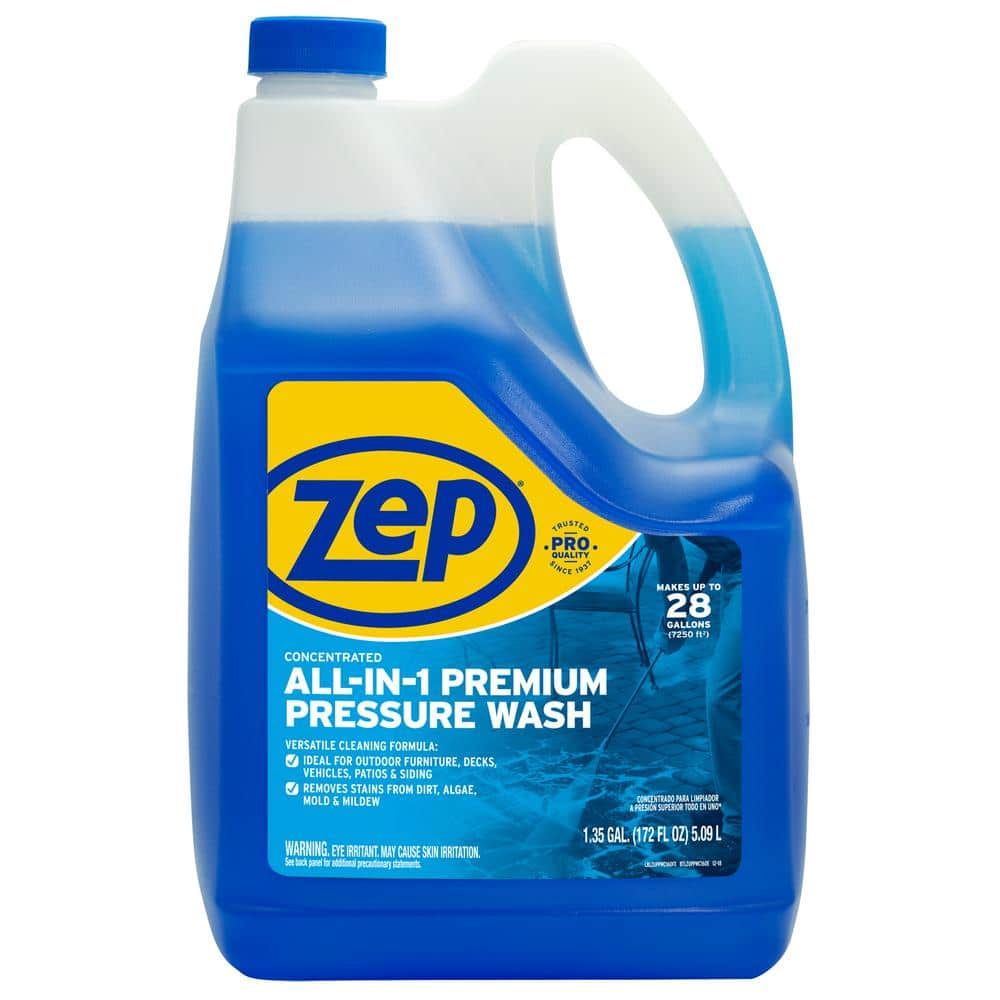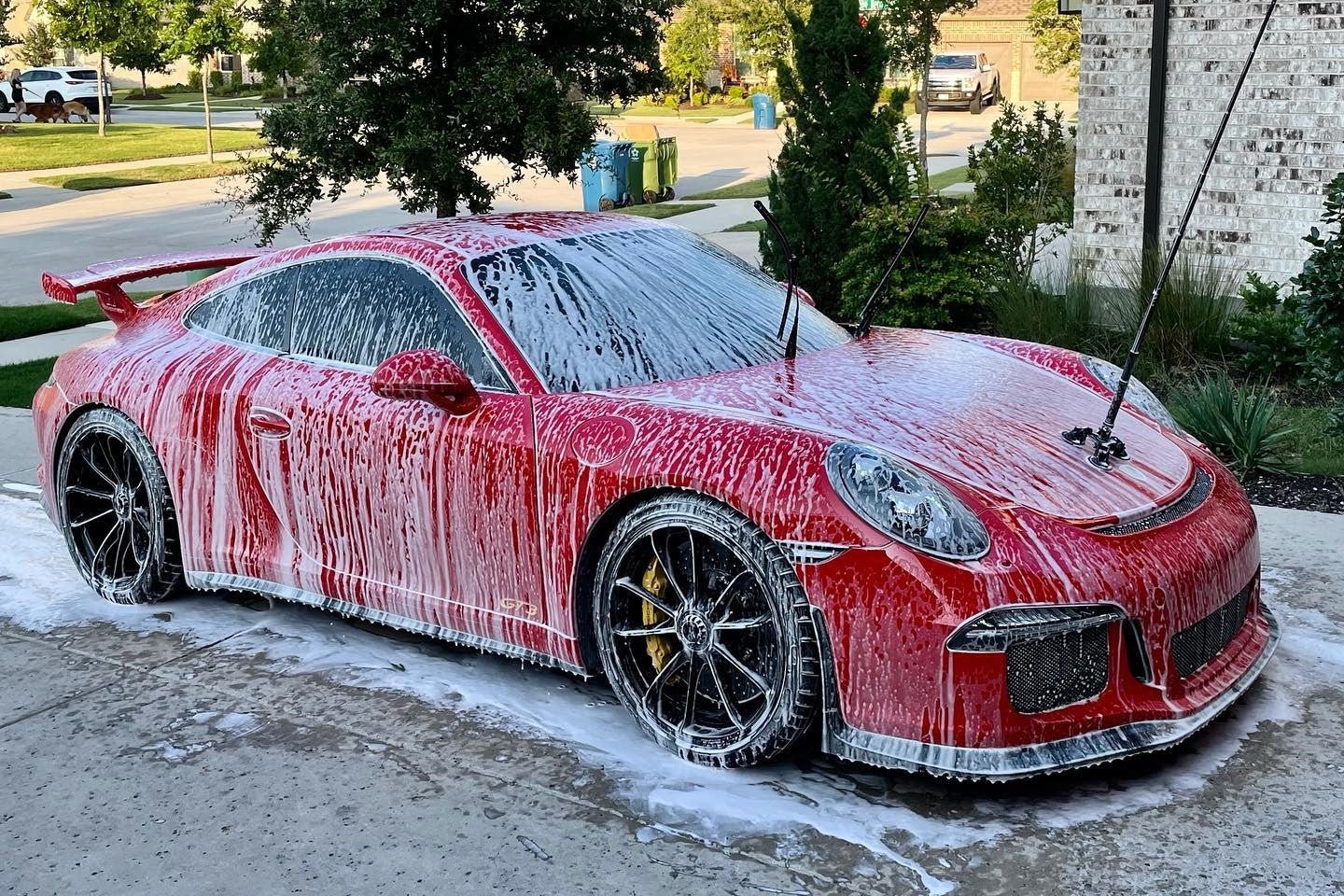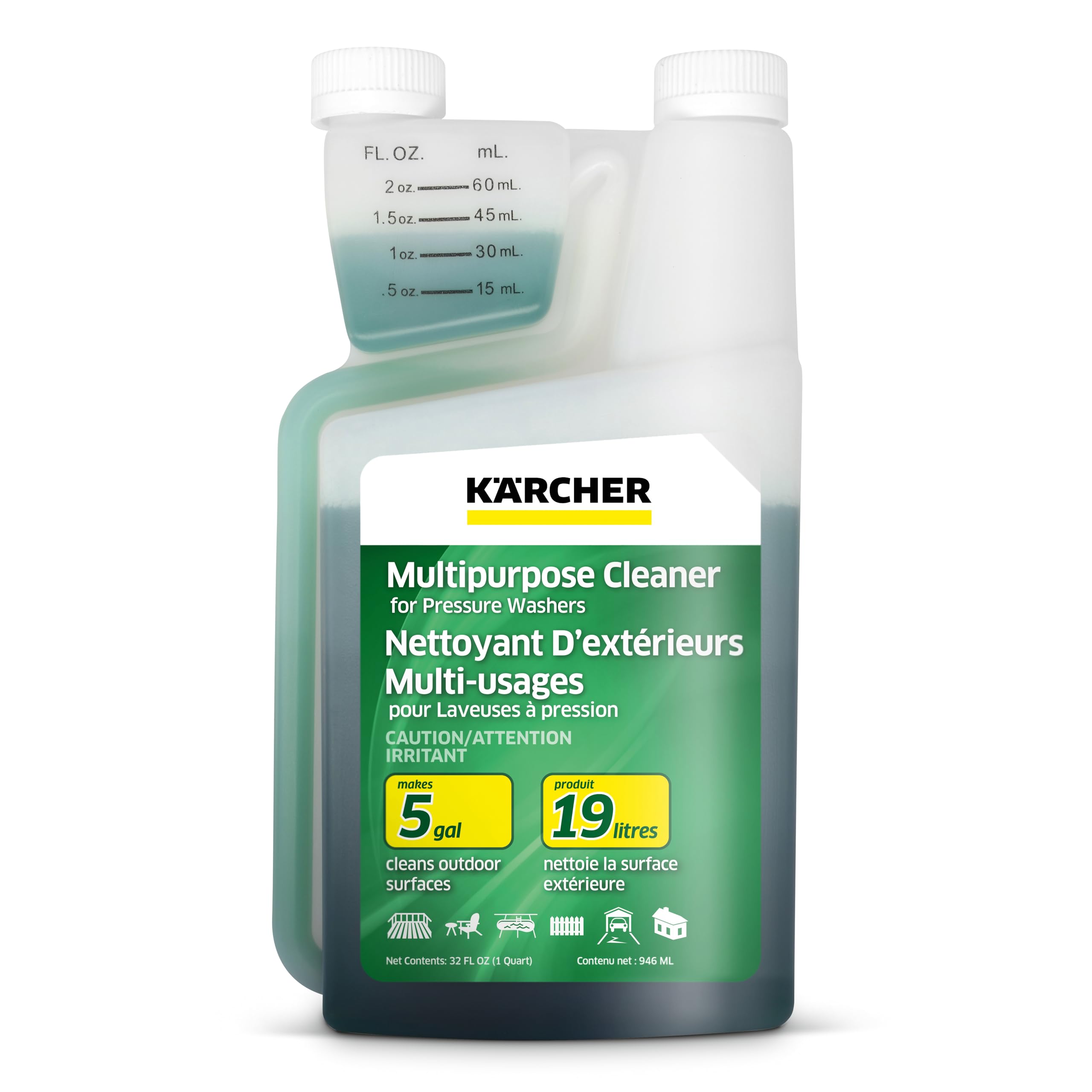Use a detergent specifically designed for pressure washers. Avoid regular soaps, as they can damage your machine and surfaces.
Choosing the right soap for your pressure washer is crucial for effective cleaning. Pressure washer detergents are formulated to work with high-pressure systems, ensuring optimal performance. They break down dirt, grime, and stains without harming your surfaces or equipment. Some soaps are biodegradable, making them eco-friendly options for outdoor cleaning tasks.
Different surfaces require different soaps, such as concrete cleaners or vehicle washes. Always check the manufacturer’s guidelines to select the appropriate detergent for your specific pressure washer model. Using the correct soap enhances cleaning efficiency and prolongs the life of your machine, making it a worthwhile investment.
Page Contents
- 1 Introduction To Pressure Washers And Soap Usage
- 2 Types Of Pressure Washer Soaps
- 3 Understanding Soap Specifications
- 4 Choosing Soap For Different Surfaces
- 5 Eco-friendly And Homemade Solutions
- 6 Commercial Vs. Homemade Soaps
- 7 Safety Precautions And Best Practices
- 8 Troubleshooting Common Soap Issues
- 9 Expert Tips For Enhanced Cleaning
- 10 Conclusion: Making The Best Soap Choice
- 11 Frequently Asked Questions
- 12 Conclusion
Introduction To Pressure Washers And Soap Usage
Pressure washers are powerful tools for cleaning. Soap plays a key role in this process. It helps to break down dirt and grime. The right soap can make cleaning easier and faster.
Using the correct soap offers several benefits. It enhances the cleaning power of the pressure washer. Some soaps are designed for specific surfaces. This prevents damage to delicate areas like wood or paint. Choosing the right soap helps to save time and water.
Always check the soap’s label for compatibility. Some soaps are eco-friendly, which is great for the environment. Using the wrong soap may harm your pressure washer. It can also lead to poor cleaning results.

Credit: clarionmunicipal.com
Types Of Pressure Washer Soaps
Many types of soaps exist for pressure washers. Each type serves a specific purpose. Chemical composition varies among soaps, affecting cleaning power.
Common varieties include:
- Alkaline soaps: Great for grease and oil removal.
- Acidic soaps: Effective against rust and mineral stains.
- Biodegradable soaps: Safe for the environment.
- Foaming soaps: Help lift dirt and grime easily.
Choose a soap based on the surface being cleaned. For example, use alkaline soaps for driveways and acidic soaps for patios. Always check the label for safety instructions.
Understanding Soap Specifications
Understanding soap specifications is crucial for effective pressure washing. The pH level of soap impacts cleaning power. A pH between 6 and 8 is ideal. This range is safe for most surfaces.
Biodegradable options are better for the environment. These soaps break down naturally. They do not harm plants or wildlife. Look for labels that indicate eco-friendly formulations.
| Soap Type | pH Level | Biodegradable |
|---|---|---|
| Alkaline Soap | 9-11 | No |
| Neutral Soap | 6-8 | Yes |
| Acidic Soap | 4-6 | Varies |
Choosing Soap For Different Surfaces
Choosing the right soap is crucial for cleaning different surfaces. For delicate surfaces, use a gentle soap. These soaps clean without causing damage. Look for products labeled as safe for soft materials. They help maintain the surface’s shine.
Heavy-duty cleaning agents are best for tough stains. These soaps contain stronger chemicals for effective cleaning. Use them on surfaces like concrete or metal. Always read the instructions before use to avoid any issues.
| Surface Type | Recommended Soap |
|---|---|
| Delicate Surfaces | Gentle Soap |
| Heavy-Duty Cleaning | Heavy-Duty Soap |
Eco-friendly And Homemade Solutions
Choosing eco-friendly soaps for a pressure washer can be easy. Natural ingredients work well and are safe for the environment. Here are some great alternatives:
- Castile soap – Made from vegetable oils, it’s gentle and effective.
- Baking soda – Helps lift dirt and stains without harsh chemicals.
- White vinegar – A powerful cleaner that cuts through grease and grime.
- Essential oils – Add a pleasant scent and boost cleaning power.
DIY soap recipes can save money and reduce waste. Mix Castile soap with water for a simple cleaner. Combine baking soda and water for a paste to scrub tough spots. Vinegar can be used alone or with soap for extra cleaning strength.
Commercial Vs. Homemade Soaps
Commercial soaps often have strong cleaning power. They are specially made for pressure washers. Homemade soaps use common ingredients. They are easy to make and can be safe for the environment.
In terms of performance, commercial soaps usually clean faster. They can remove tough stains easily. Homemade soaps may work well for light cleaning tasks.
Cost is an important factor. Commercial soaps can be more expensive than homemade options. Homemade soaps use items like vinegar and baking soda, which are cheap and easy to find. Availability is also key. Many stores sell commercial soaps, but homemade options can be made at home.
Safety Precautions And Best Practices
Always use proper handling techniques with soap for pressure washers. Store soap in a cool, dry place. Keep it out of reach of children and pets. Use sealed containers to avoid spills.
Wearing personal protective equipment is vital. Use gloves to protect your hands. Safety goggles shield your eyes from splashes. A mask can help prevent inhaling harmful fumes.
Ensure to wear long sleeves and pants for extra protection. Closed-toe shoes are essential to protect your feet. Follow these practices to stay safe while using soap in pressure washers.

Credit: www.homedepot.com
Troubleshooting Common Soap Issues
Soap residue can be a common problem. It may cause streaks on surfaces. To avoid this, use the right soap concentration. Start with a lower concentration and increase if needed. Always follow the manufacturer’s instructions for best results.
Adjusting the soap concentration is key. Too much soap leads to more residue. A diluted solution often works better. Test on a small area first. This helps to see the results before full application.
Using the correct soap type is essential. Choose soaps designed for pressure washers. They help prevent build-up and protect surfaces. Always rinse thoroughly after washing to remove any remaining soap.
Expert Tips For Enhanced Cleaning
Using the right soap is key for effective pressure washing. Choose detergents that are safe for your surfaces. Avoid harsh chemicals that can damage paint or wood.
For application techniques, mix the soap with water according to the instructions. Use a low-pressure nozzle for applying soap. This helps the soap stick to the surface better.
Regular maintenance of your pressure washer extends its life. Clean the filter after every use. Check hoses for leaks or cracks regularly.
Store your pressure washer in a dry place. Protect it from extreme temperatures. Following these tips ensures your machine works well for years.

Credit: giraffetools.com
Conclusion: Making The Best Soap Choice
Choosing the right soap for your pressure washer is important. Consider the surface you will clean. Different surfaces need different soaps. For example, wood needs a gentle soap, while concrete can handle stronger options.
Check the manufacturer’s guidelines for your pressure washer. Some machines work better with specific soaps. Avoid using regular dish soap as it can harm your pressure washer.
Look for biodegradable options. These are better for the environment and safe for plants. Always read the labels to ensure the soap is suitable for your needs.
| Surface Type | Recommended Soap Type |
|---|---|
| Wood | Gentle soap |
| Concrete | Heavy-duty soap |
| Vehicles | Car wash soap |
Frequently Asked Questions
What Soap Can I Use In A Pressure Washer?
You can use specially formulated pressure washer soaps. These soaps are designed to work with high-pressure systems without causing damage. Avoid using regular dish soap or household cleaners, as they can create too much foam or harm your equipment. Always check the manufacturer’s recommendations for the best results.
Can I Use Bleach In A Pressure Washer?
Yes, but with caution. Bleach can effectively remove mold and mildew but can also damage your pressure washer if not diluted properly. Use a bleach ratio recommended by your pressure washer’s manufacturer. Always rinse thoroughly to prevent any residue that could harm surfaces or equipment.
How Do I Choose The Right Pressure Washer Soap?
Choose soap based on your cleaning task. For instance, use a degreaser for oily surfaces and a detergent for dirt and grime. Look for eco-friendly options that won’t harm plants or pets. Always read labels to ensure compatibility with your pressure washer model for optimal performance.
Is Pressure Washer Soap Safe For Plants?
Most pressure washer soaps are safe for plants if used correctly. However, always check the product label for safety information. Diluting soap and rinsing surfaces after cleaning can minimize any potential harm. It’s best to avoid washing directly onto plants to prevent any adverse effects.
Conclusion
Choosing the right soap for your pressure washer is crucial for effective cleaning. Always consider the surface and type of grime you are tackling. Using the appropriate soap enhances performance and prolongs your equipment’s life. With the right knowledge, you can achieve sparkling results every time.
Happy washing!

